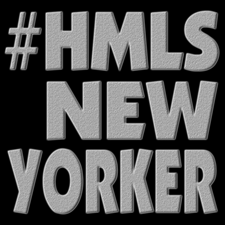“Antera Duke was a leading elk trader at Old Calabar in the Bight of Biafra during the late eighteenth century. He lived at Duke Town, about twenty miles from the Calabar River estuary. Over time he prospered and became a member of the local Ekpe (Leopard) Society, which wielded enormous power in the slave trade […]
Read the rest of this entry »Blog ArchivesBlog Archives
Book Excerpt Of The Week: “The Slave Ship” By: Marcus Rediker
“Another feature that was literally central to the social organization of the main deck- the barricado, a strong wooden barrier ten feet high that bisected the ship near the mainmast and extended about two feet over each side of the vessel. This structure, built to turn any vessel into a slaver, separated the bonded men […]
Read the rest of this entry »Definitions Better Than Webster’s: Factory
“The word ‘factory’ came into usage in the late sixteenth century as global trade expanded. Its root word was ‘factor,’ a synonym at the time for ‘merchant.’ A factory was therefore ‘an establishment for traders carrying on business in a foreign country.’ It was a merchant’s trading station.” -From, “The Slave Ship” By: Marcus Rediker […]
Read the rest of this entry »Book Excerpt Of The Week: “The 8th Habit” By: Stephen Covey
“I have found that by making four simple assumptions in our lives we can immediately begin leading a more balanced, integrated, powerful life: (1) For the body- Assume you’ve had a heart attack; now live accordingly. (2) For the mind- Assume that the half life of your profession is two years; now prepare accordingly. (3) […]
Read the rest of this entry »Book Excerpt Of The Week: “Wisdom Of The Peaceful Warrior” By: Dan Millman
“You’ve probably heard the saying that everyone is an optimist in the first hours of a diet. So when we make positive changes, take on new disciplines, or start new exercise routines or dietary regimens, we begin with enthusiasm and may even experience positive results in a relatively short time. But inevitably, over time, we […]
Read the rest of this entry »Elsie Law’s Dose Of The Law: The Code Noir
“The French empire in the West Indies was built on sugar production and the labor of enslaved Africans. The Code Noir, a French legal code, regulated slavery in the West Indies. Though it was never made law in Canada, New France’s slaveholders applied the Code Noir when they thought it necessary. In 1685, when the […]
Read the rest of this entry »Black History Fact Of The Day
“Henry Bibb, who escaped from slavery in Kentucky and moved to Canada in 1850, published the country’s first Black newspaper, “The Voice of the Fugitive,” in which he recorded the narratives or numerous escaped slaves.” -From, “The Hanging of Angelique” By: Afua Cooper Tweet
Read the rest of this entry »Book Excerpt Of The Week, “Let The Trumpet Sound: The Life Of Martin Luther King Jr.” By: Stephen B. Oates
“The city fathers, however, refused to take the boycott seriously. ‘Comes the first rain day,’ the mayor said with a laugh, ‘and the Negroes will be back on the buses.’ In fact, it rained the next day. But the Negroes stayed off the buses, most of them trudging to work under umbrellas and newspapers, bundled […]
Read the rest of this entry »What’s In A Name?: Cadillac: The Slave-Holding Founder Of Detroit
“The Detroit River frontier, which encapsulates the present Detroit are and the counties of Essex and Kent in Ontario, was also a centre of French habitation and hence slavery. Black slavery in the Detroit River district began when the fur trader and explorer Antoine de La Mothe Cadillac traveled to the region and in 1701 […]
Read the rest of this entry »Black History Fact Of The Day
Brazilian gold extraction, like its sugar production, was based on African slavery.” From, “The Hanging of Angelique” By: Afua Cooper Tweet
Read the rest of this entry »

